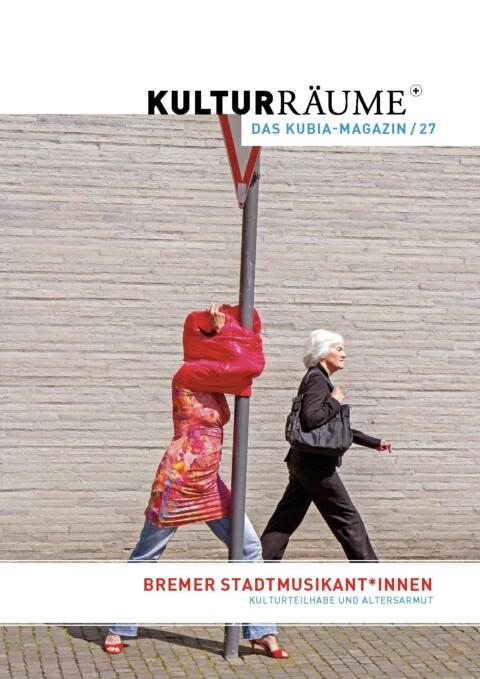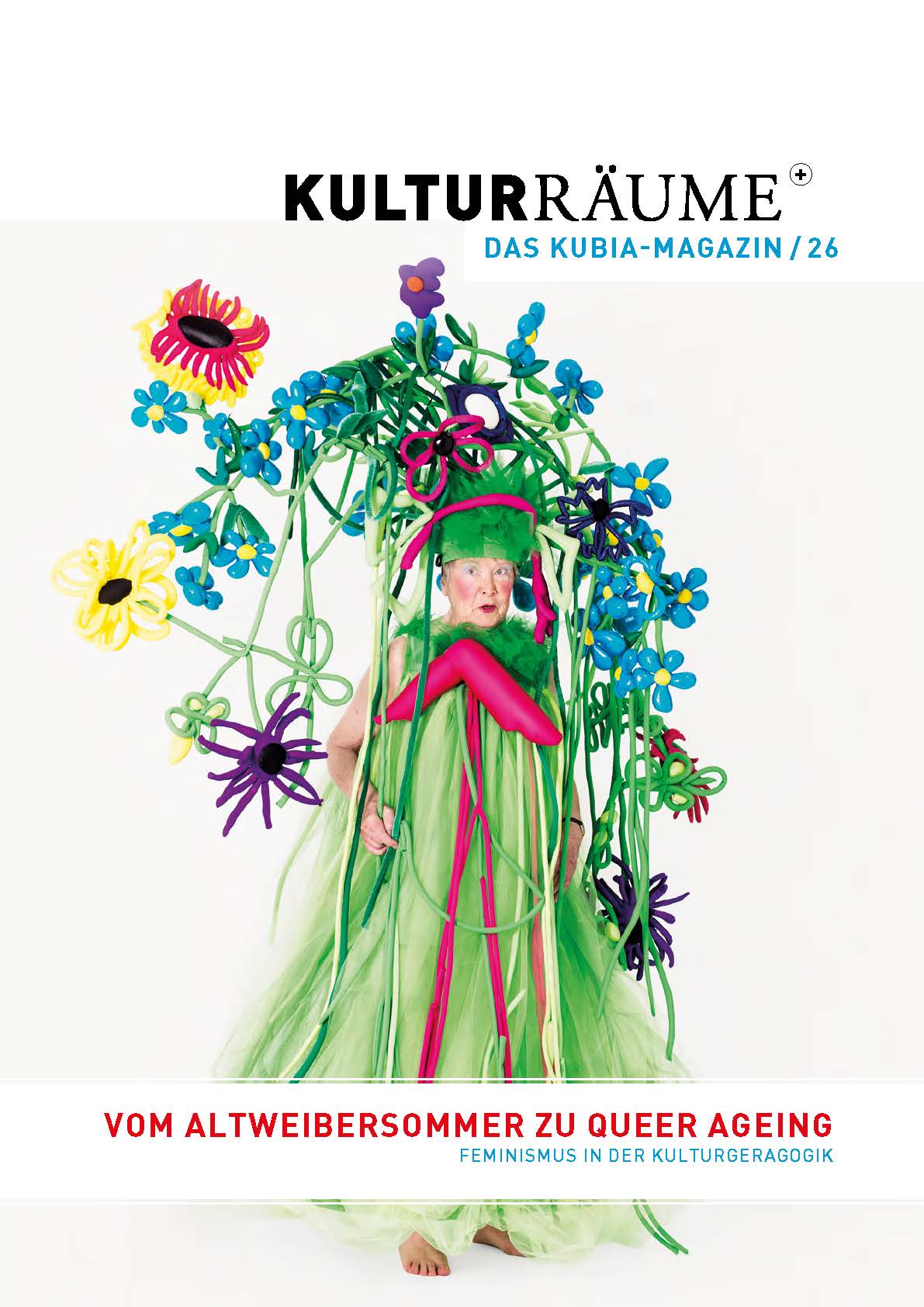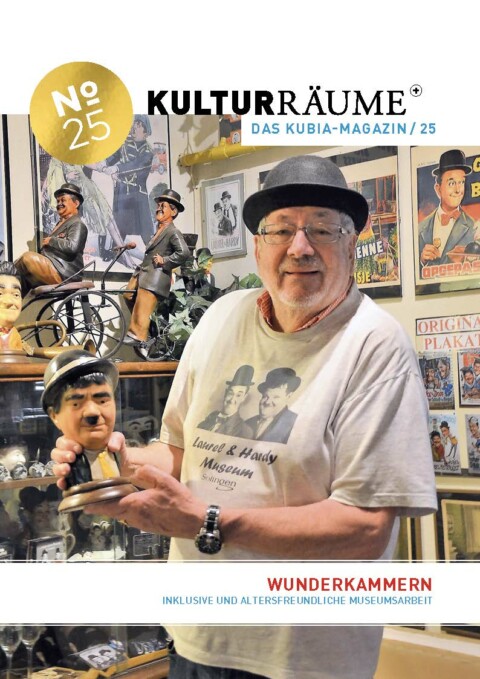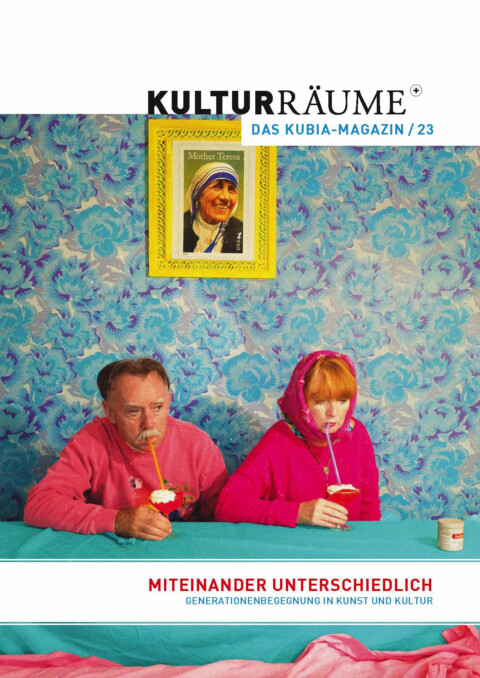The 26th issue of kubia magazine asks how feminism has shaped academic discourse, cultural practice and female biographies.
The lives of many older women today have been influenced by the successes and setbacks of the women’s movement since the 1970s. The new issue of the kubia magazine Kulturräume+ is dedicated to these women of the 1968 and boomer generations. The magazine also builds bridges between the generations and picks up on the impulses of gender and queer studies for cultural geragogy and intergenerational cultural education.
Feminists in the 1970s were already aware that women were more affected by age discrimination and poverty in old age than men. Since then, there has been an increasing focus on how discrimination and exclusion of older people based on gender, sexual orientation, ethnicity, class, disability and educational status overlap and reinforce each other. Miriam Haller’s contribution, which deals with the development of the feminism and gender discourse in gerontology, draws this historical arc.
Intergenerational similarities and differences on the way to a contemporary women’s culture are the subject of an interview with the Frauenkulturbüro NRW. Monja Droßmann explains how “cooking, cleaning and caring” found its way into art in her article about the exhibition and research project of the same name.
Practical insights look at three projects that use dance, performance and film to artistically undermine and scrutinise female images of age and normative role attributions. The issue is illustrated with works by the artist Justyna Koeke, who has developed a sculptural fashion performance with older women based on her childhood drawings.





